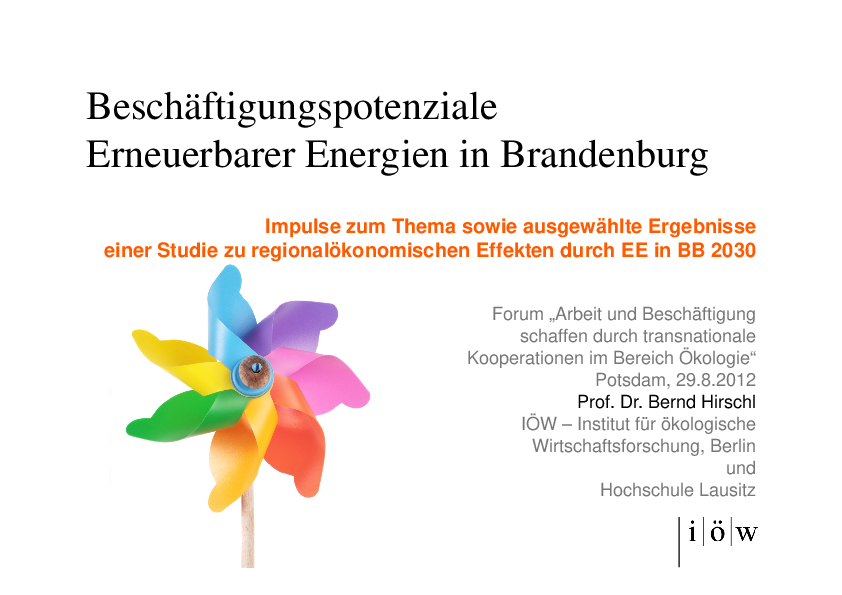Renewable Energies in Brandenburg 2030 - Expansion Potential and Value-added Effects
Brandenburg seeks to reduce its energy-related CO2 emissions by 40 percent in 2020 compared to the year 1990. Furthermore, CO2 reductions of another 35 percent are planned until 2030. To achieve these objectives, the Brandenburg government uses a set of measures including increased energy efficiency, expansion of renewable energies, an emissions trading system, and possibly CCS technologies for fossil power generation. Renewable energies are known to contribute highly to the regional value added, which makes them a key measure in the strategy to reduce greenhouse gas emissions. Hence, the main focus of this project is to estimate the expansion potential of these technologies, including the connected effects for the local value added (i.e., net income, corporate profits, and taxes).
IÖW Project Team
- Mark Bost
- Anna Neumann
- Dr. Julika Weiß




